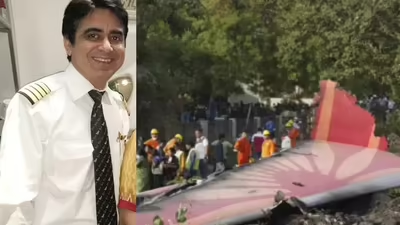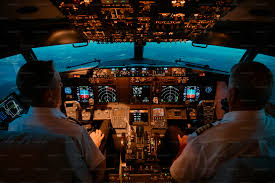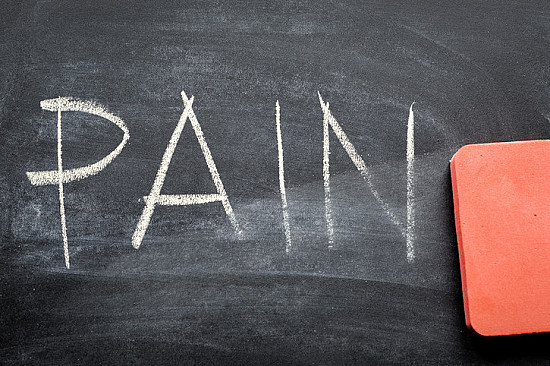I’m sure most of you might have come across the news about the recent Air India AI 171 Boeing 787 dreamliner plane crash—one of the deadliest in recent times—with at least 270 people confirmed dead (as I write this). My heart goes out to every single soul who lost their life in that tragic flight.
This incident has been sitting quietly at the back of my mind for the past two to three days. It bothered me—deeply—for reasons I couldn’t understand at first. Slowly, I started finding answers to some of those thoughts, while others still remain open questions that I’m trying to figure out.
Let me make it clear—this blog isn’t an attempt to dissect the possible causes of the crash. I’m not a pilot, nor an aviation expert, and I don’t want to feed into the theories floating around. If you’re looking for a technical breakdown or logical analysis, this probably isn’t the read for you.
But if you’re someone who gets curious about what happens inside the human mind in those final moments… or how we, as people, respond to extreme, life-threatening situations—then maybe you’ll resonate with what I’m about to share.
The Thing About Death
If you’ve been reading my blogs, you’d know I often bring up death—not in a morbid way, but to ground myself. There are two reasons I do that:
A) To remind me of reality.
B) To remind us that we’re not immortal.
But truth be told, I’m just like everyone else—I don’t want to die. I don’t want to lose the people I love. I cling to life even when I talk about death. Still, life doesn’t really care about our preferences, does it?
The passengers and crew on that Air India flight didn’t board the plane expecting it to be their last ride. No one does. But life can be ruthless—it strikes when we least expect it. And if you really think about it, we walk around every day with this unconscious optimism that nothing will happen to us… until something does.
I keep wondering what thoughts ran through their minds when—or if—they heard the “Brace for impact” announcement. But from what I’ve read, the crash happened too fast for that. The plane hit a hostel building barely seconds after takeoff.
38 seconds. That’s all the time the pilots had.Imagine that—just 38 seconds to make life-and-death decisions for 242 people onboard. I’m sure they were doing everything in their power to avoid the inevitable. And I doubt they even got a second to think about themselves.
The people on board must have felt something was wrong. Fear, panic, disbelief. But they must have trusted the pilots. They may have prayed to all the gods they know . Maybe they just held onto a sliver of hope, even when the harsh reality stared them down.That trust. That hope. That final fight—knowing what’s coming…It breaks me.
I’ve Been There—Almost
I say this with some weight, because I’ve had two near-death experiences of my own. I survived, obviously. But those moments? They’ve left a mark.
It’s been 15 years, so my memory isn’t perfect. But I’ll try to be honest. When we share such stories—even in therapy—there’s always some imagination that sneaks in to fill the gaps. Words can’t fully capture emotion. We reach for the closest ones and move on. But sometimes, those small memories come back with surprising clarity.
The first incident happened when I was just learning to swim. Three of my friends and I made a stupid bet to see who was the best swimmer. Behind my house was a massive, deep pond—so deep that even during summer, the water stayed full.
It was the rainy season, the pond was almost full, and the challenge was simple: swim from one end to the other and back. Whoever finished first won a treat (don’t remember what the treat was, probably just ego). I was so pumped. I swam across just fine, but on the way back, I hit a wall. My body shut down—completely fatigued. I tried to push, but I was sinking.Soon ,I stopped fighting. I accepted it. Then, I felt this eerie silence inside me ,a strange calm and I slowly closed my eyes.
And then—Someone yanked my hair up.My friends had realized I was drowning. They saved me.
The second incident? Even dumber.
A few weeks after that, I got obsessed with a story I’d read—the Panchatantra tale of the monkey and the crocodile. It was about friendship, betrayal, and wit. I don’t know what got into me, but I decided to play it out… by jumping into a river with my four-year-old baby brother on my back.
Yeah.
The second I hit the water, I knew I’d messed up. I couldn’t swim well enough, and the weight of my brother was pulling me down. I wrapped his legs around my shoulders and went completely under.
I couldn’t breathe. I was losing oxygen. My body was giving up. But my mind fought. I wasn’t going to let him drown. I kept him up—somehow.
From the shore, my mother saw a tiny head floating. She dove in, pulled him out first, and then dragged me out by my hair. I blacked out. I’ve erased most of what happened after i regained my consciousness (and if you’ve ever pissed off an Indian mom for nearly killing her kid, you probably know what happened next).
When You’re Alone vs. When You’re Not
Both those moments were close. But what I felt in each was so different.
When I was alone, I gave up.
When I had someone with me—I fought.
That’s the thing about humans. In our most fragile moments, we still try to save others. We forget ourselves. That, I believe, is what happened with the Air India pilots , Captain Sumeet Sabharwal and first Officer Clive Kundar.They didn’t prioritize themselves. They tried—until the last second—to protect everyone else. They paid the price with their lives.And no one’s going to remember their names like they should. But they are heroes in my eyes. The kind of heroes who show up silently and disappear just as quietly.Thank you, both of you. And to every crew member on that flight—thank you for your courage and showing the raw and real human spirit when you were stripped of everything else.
PS: Just to reiterate, the intent of this blog is to reflect on what may have occurred during the final 38 seconds of their lives — irrespective of the cause. Whether it was a technical failure or human error, we simply don’t know yet. Until the official findings are released, all we can do is wait — with care, respect, and patience.
More details about the crash : https://www.firstpost.com/explainers/mayday-call-crash-into-medical-hostel-what-happened-to-air-india-flight-after-it-took-off-13896549.html




